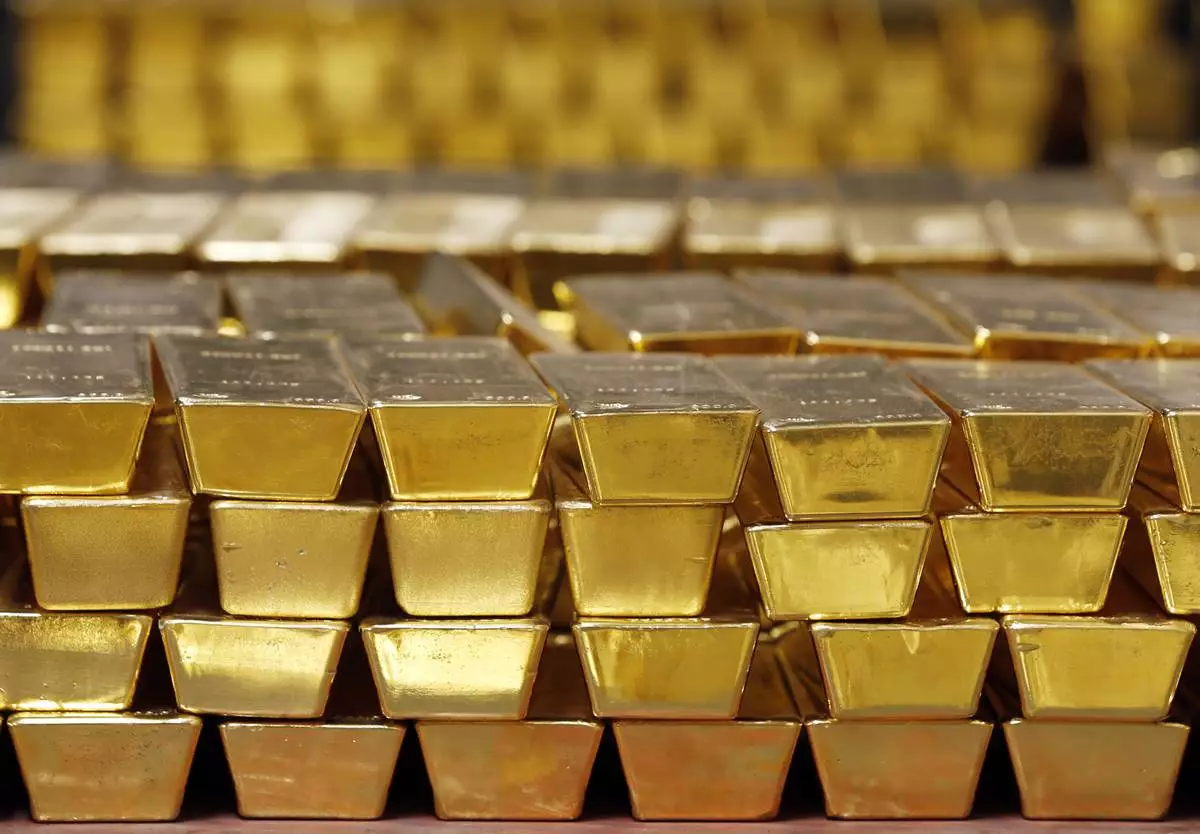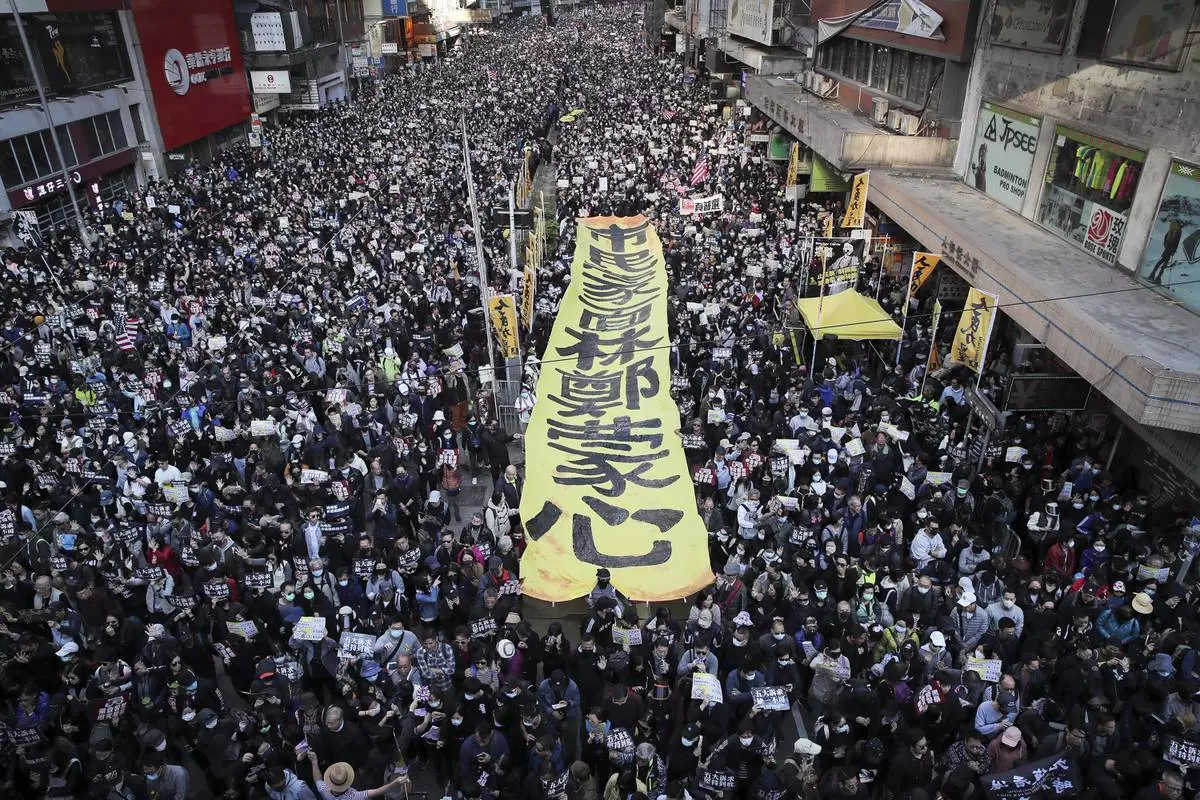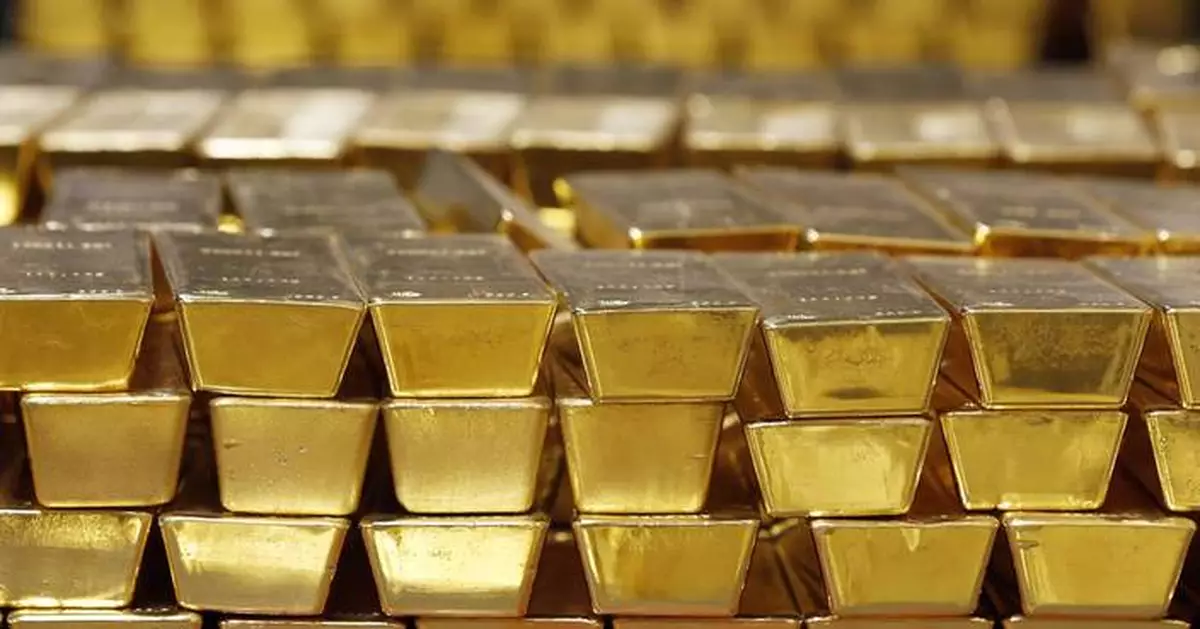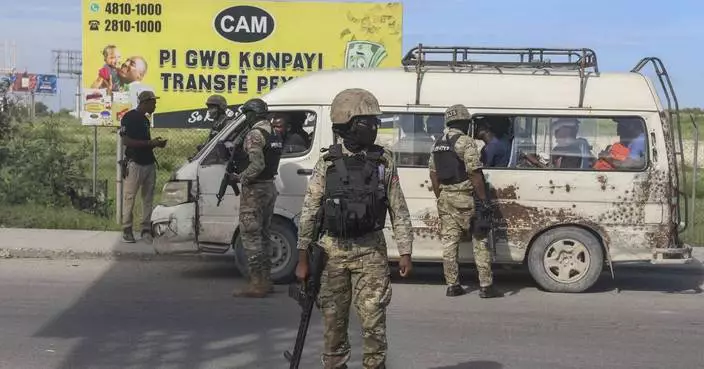NEW YORK (AP) — After ripping higher for much of this year, the price of gold has suddenly become not so golden since Donald Trump's victory in the presidential election.
Gold fell more than 4% in the four days since Election Day, when the broad U.S. stock market climbed nearly 4%. That's even though investors are expecting a Trump White House to drive tax rates lower and tariffs higher. Such a combination could push the U.S. government's debt and inflation higher, which are both things that can help gold's price.
That's left gold at $2,618 per ounce, as of late Monday, down from a record of roughly $2,800 set late last month. It also means gold has lost some luster as the best performing investments of the year. The largest exchange-traded fund that tracks the price of gold has seen its gain for 2024 drop back below 27% from nearly 35% a couple weeks earlier.
What's going on? Part of the decline has coincided with the strengthening of the U.S. dollar against other major currencies. Tariffs and trade wars instigated by the United States could push down the value of the euro and other countries' currencies, and a strong U.S. dollar makes it more expensive for buyers using those other currencies to purchase gold.
Trump's preference for lower taxes and higher tariffs is also forcing Wall Street to ratchet back expectations for how many cuts to interest rates the Federal Reserve will deliver next year. Fewer rate cuts would mean Treasury bonds pay more in interest than previously expected, and that in turn could hurt gold's price. Gold, which pays its owners zero dividends or income, can look less attractive when bonds are paying more.
Gold, of course, still has its reputation for offering a safer place for investors when things are shaky around the world. Whether it's been because of wars or political strife, investors often flock to gold when they're not feeling confident about other investments. And with wars still raging in the Middle East, Ukraine and elsewhere, while political tensions still seem as high as ever, gold will likely stay in many investors' portfolios.
“Gold continues to be the safe haven asset class of choice for both investors and central banks,” according to money managers at Robeco, which handles investments for big institutional investors.

FILE - Gold bars are shown stacked in a vault at the United States Mint on July 22, 2014 in West Point, N.Y. (AP Photo/Mike Groll, File)
HONG KONG (AP) — The mastermind behind a foiled bomb plot during anti-government protests in Hong Kong in 2019 has been jailed for nearly 24 years in the city's first case brought under an anti-terrorism law.
Ng Chi-hung, who had previously pleaded guilty to conspiring to commit the bombing of prescribed objects under the anti-terror law and possession of arms or ammunition with intent to endanger life, was sentenced to 23 years and 10 months by a Hong Kong court on Thursday.
He was among seven convicted defendants who appeared in court for their roles in the plot to plant two bombs and shoot officers along a rally route on Dec. 8, 2019, at a time when accusations of police brutality in handling protesters were widespread.
Judge Judianna Barnes said the plan was vicious and was a declaration of war on society.
The seven are not well-known activists in the semi-autonomous Chinese city’s pro-democracy movement, but their case has drawn attention because the United Nations (Anti-Terrorism Measures) Ordinance was invoked.
Hong Kong enacted the law to implement a U.N. Security Council resolution passed after the Sept. 11, 2001, attacks in the United States.
According to local media, prosecutors said most of the defendants in the case were members of two groups — one led by Ng and another called “Dragon-Slaying Brigade." The prosecution said members of the brigade planned to lure police officers onto an area where bombs would be detonated and a sniper would target them.
Wong Chun-keung, leader of the brigade, was sentenced to more than 13 years. Five other defendants received prison terms ranging from nearly six years to 12 years.
In August, six other defendants, who had pleaded not guilty, were acquitted by a panel of jurors.
Steve Li, chief superintendent for the police's national security department, said he would study the judgment and consider whether to appeal some sentencing decisions. He also criticized those convicted as deranged.
The 2019 protests marked the most concerted challenge to the Hong Kong government since the former British colony returned to Chinese rule in 1997.
Following the protests, more than 10,000 people have been arrested in connection with the often-violent social unrest sparked by a now-withdrawn extradition bill, which would have allowed suspects in Hong Kong to be sent to mainland China.

FILE - Pro-democracy protesters march on a street during a protest in Hong Kong, on Dec. 8, 2019. (AP Photo/Kin Cheung, File)











